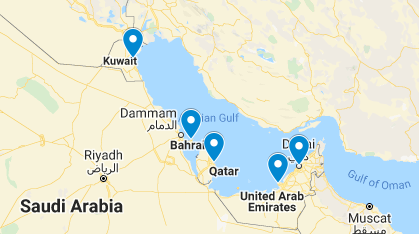By Cynthia Ang
Source: Middle East Insurance Review | Dec 2016

The broking industry is embracing disruption and strategising its approach to keep pace with new threats and changing customer needs amid a rapid digital evolution.
|
Highlights
|
With advances in technology, from the advent of smartphones and tablets to the explosion of online apps, customers are becoming increasingly sophisticated and want very specific things from the business they interact with as they now use mobile devices to talk, search and buy. There is also much more comparison shopping, hence expectations on functionality are high and the fewer clicks needed, the better.
Impact of digital disruption on brokers
As customer expectations are being shaped by online buying experiences in other industries, they also increasingly expect shopping for insurance policies to be as easy and convenient as shopping on Amazon and Netflix. Inevitably, the advent of technology, together with changing customer behaviour, has also brought change and disruption to traditional distribution channels in the Middle East, which have typically been dominated by brokers and agent sales.
According to Mr Ranji Sinha, Executive Vice President Distribution at Oman Insurance Company, “the broking fraternity in the Middle East is at a cross road and faces the twin challenge of developing their capability to manage and retain customers while remaining not only cost competitive but offering a level of service that is considered to be the best by industry standards”.
He added that large and complex risk may still require the traditional approach, but the standard risk will test the broker’s ability to help their customers find a more personalised solution to their insurance needs.
“Whether it is the use of analytics to recommend appropriate cover at a competitive price or online tracking of claims, digital disruption has the potential to change the landscape of insurance industry in a not too distant future. As it would entail significant investments in technology, the smaller brokers may struggle to survive and the market may see mergers and acquisitions sooner than expected,” he said.
Describing the impact of emerging digital technologies as significant and unstoppable, Nexus Group’s Chief Information Officer Weldon DeSouza said businesses need to embrace disruption and plan for it. He added: “As a whole, there are strong positives for the brokerage industry, but individual brokers must evolve if they are to survive. Those who use digital technologies effectively will give themselves an edge and get ahead of the game.”
On the other hand, Mr Mustafa O Vazayil, Managing Director at Gargash Insurance Services, felt that the impact of digital disruption in the insurance broking industry “is relatively low and is limited mainly to personal auto insurance”.
However, Mr Vazayil noted that social media marketing is growing and will impact conventional methods. “The industry needs to invest more in its technology delivery platforms. It needs to engage the customers through social media. All this needs to be backed with good old professional service.”
Slow to keep up with digital
While there is a large number of brokers, both local and international, in the Middle East, only a few have advanced capabilities to help their customers understand the risk better, said Mr Sinha. He added: “Today, the customer looks at the broker not only from the perspective of placing the cover, but also as an advisor who manages and mitigates their risk. Data management, advanced analytics, online facilities for convenience and transparency, are all dependent on new technology and are essential tools for meeting the demands of customers who are becoming increasingly sophisticated.
“Unfortunately, not many brokers in the Middle East realise that digital capabilities would strengthen their position as the first point of contact in the value chain, and have shied away from upgrading their technology.”
Ms Reena Vivek, Zurich’s Chief Operations Officer overseeing the Isle of Man, Middle East, Hong Kong and Singapore operations, said: “As the low-hanging fruit, we expect brokers to invest in omni-channel capabilities to support customer servicing. This would help them to differentiate themselves in the market and increase competitiveness whilst reducing costs.
“It will also improve persistency and reduce the propensity of customers to switch brokers. Most importantly, as the market and regulations mature, and regulations demand increased disclosure of fees and commission, these capabilities will help brokers demonstrate value to customers.”
In the life insurance space, she said “at this point, brokers are in early stages of considering or building digital platforms. This is mainly because the market is still very much driven by face-to-face interactions and digital support, if any, is provided by the insurance providers”.
Knowing the game
In order to engage customers effectively, Mr DeSouza said the broking industry can look at how other industries use technology to create direct access to consumers and how they improve the speed and accessibility of services for clients.
For instance, he noted that “there are some important lessons in how online banking has transformed the way we handle day-to-day finances, and insurance brokers need to offer clients a way to go online, find exactly what they need, and strike a deal immediately. We need to look at how we offer convenience, take less of the clients’ time, and ideally reduce the need for face-to-face meetings – but still maintain that personal relationship”.
Ms Vivek said insurance brokers can learn from banks on how to leverage digital technology to improve customer experience and provide personalised services, “thereby building customer loyalty, investing in mobile technology to keep in touch with their customers and gaining insights into customer lifetime events”. In addition, brokers can also look at how the retail industry is using internet and other digital platforms, including social media to generate leads and referrals.
Analytics is a major tool which brokers can benefit from, said Mr Vazayil, pointing out that insurance brokers need to use this tool to identify and target its desired customer segments.
For the industry to remain relevant, Mr DeSouza said: “We need to understand that for many customers, communicating online, particularly via a mobile device, is a natural part of their day. For Millennials to Gen X, anyone in their 40s or younger, we need to be easily accessible by social media or mobile messaging, and we need to offer quick and easy digital access. Smartphone apps are now standard for so many businesses, and brokers should be thinking along these lines, if they’re not already.
“However, whatever we do, we need to make it client focused. People increasingly use WhatsApp for business messages, for example, and they may follow you on Facebook, so the social media platform is a good way of broadcasting information. However, clients probably don’t want to be your friend on Facebook, and for insurance, Snapchat or Instagram are probably out. If we keep it useful, and keep it appropriate to the way customers use social media, there is a major opportunity.”
Embracing challenges
As the industry seeks to shift its approach and embrace digital technology, Mr DeSouza pointed out that “the challenge is to understand how the way we interact in the digital world can complement our traditional business, so that we can be more competitive”.
He added: “Ours is a very social business in many ways, and we need to take that social aspect online. If we get it right, we can increase our reach to potential customers, introduce new products and services to clients far more quickly, and respond to client needs much more quickly. We can also connect to age and demographic groups that we may not have reached before.”
While brokers are expected to stay ahead of the curve when it comes to large commercial risk, they are in danger of losing out to insurers in the retail space where the policies are more or less standardised, said Mr Sinha. He also highlighted that many insurers in the Middle East have invested significantly in technology for providing end-to-end service to the retail customers online, adding that “this has not only helped them optimise cost but has also improved service deliverables and the customer may not see any value addition by insuring through an intermediary”.
In recent years, there has also been an increasing number of price comparison websites in the Middle East region, giving customers greater convenience and choice. Among these companies are compareit4me, Souqalmal.com and InsureMe.ae, which is also a clear indication that technology innovation is coming to insurance.
Mr DeSouza noted: “The rise of comparison sites can also benefit brokers, because it can be seen as a step towards what we do. In the past, many people bought individual insurance policies ad hoc, with little research into alternatives, whereas now we are much more tuned into looking for the best deal.” Customers can now regularly use the internet to compare, buy and interact with providers, “so having one’s own online portal is surely a win/win”.
He added: “Ultimately, this is what a broker does, we compare products and consider the best options for an individual client’s needs. But while a comparison site will find the best deal on a one-off transaction – such as car insurance or home insurance – a good broker will take and end-to-end view of the customer’s requirements to create an evolving portfolio of tailored products. This new mindset where buyers expect to choose from many options, rather than calling for two or three quotes, can help people see the value in consulting a broker, particularly as their needs become more complicated.”
Collaboration is key
Faced with the need to keep pace with new technology threats and changing customer needs, “strategic partnership between the risk carriers (insurers) and distributors (brokers) need to reach a new and higher level of relationship”, said Mr Vazayil.
“Brokers need to function as extended arm of the risk carrier bearing in mind insurers’ objective of profitable portfolios. Insurers, on the other hand, need to identify such true partners and empower them – so that they benefit from the broker’s growth through the empowered strategic partnership,” he added.
Furthermore, technology delivery platforms need to be integrated to provide seamless transaction and after-sales service to its customers.
“We must remember that it is the customers and not technology that drives disruption. Since, brokers and insurers are business partners in the field of insurance, it is important that they forge a close relationship in developing a shared database and research capabilities that will help analyse the risk better and offer a more personalised solution to the customer,” said Mr Sinha. Developing and offering customers a core insurance platform for both policy and claims is seen as a customer-centric approach in a shifting market place, and brokers and insurers will do well to collaborate and take advantage of digitisation that will ensure greater loyalty from the customer, he added.
Mr DeSouza noted that “we also need to understand that our basic purpose in a customer’s life remains unchanged – we create peace of mind. That requires a personal touch, someone who listens, understands, and provides expert guidance – not just a machine-driven algorithm. We can have many of our conversations via digital channels, but it is the personal touch and individual understanding that makes our services unique”.
Clearly, the new technological advances are not only enabling new patterns of behaviour but also are having a significant impact on the relationship between the insurer, the distribution channels and the customers. To succeed, it is crucial for the industry stakeholders to work together to remain relevant and connected to its customers in a digital world.


